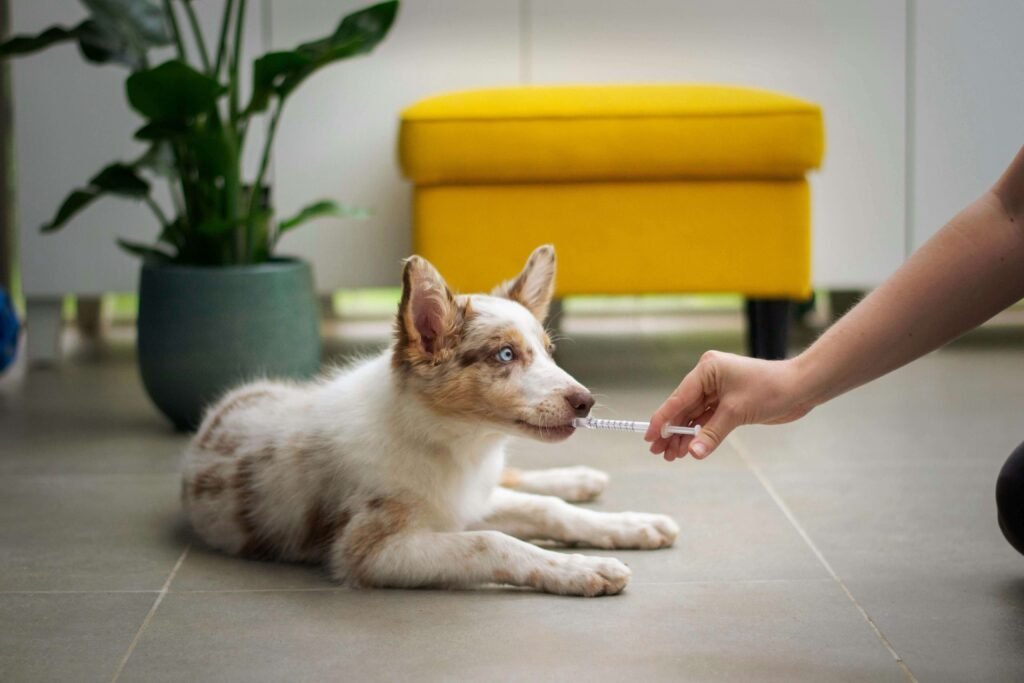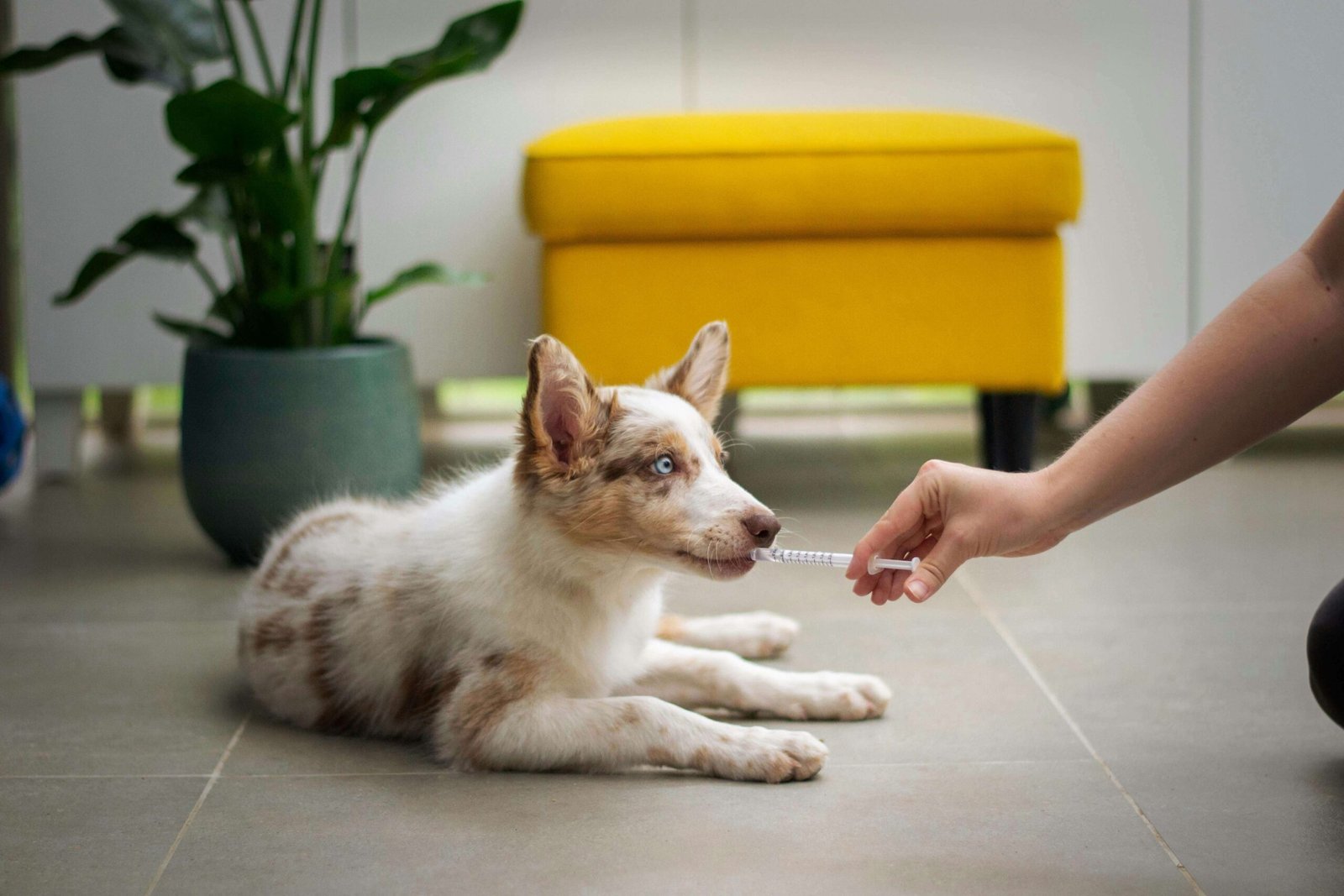Why Every Dog Owner Needs to Know About Dog Dewormer
Owning a dog is one of the most rewarding experiences, but it also comes with responsibilities. One of those responsibilities is ensuring your furry friend stays free from harmful parasites. Worms are common internal parasites that can affect dogs of all ages, causing health issues ranging from mild discomfort to severe illness.
As a responsible pet parent, understanding the importance of deworming and using the right dog dewormer is crucial for your dog’s well-being. In this blog post, we’ll explore everything you need to know about deworming, including why it’s important, how often it should be done, and what products work best.
Our Top Picks:
Activate II Flea and Tick Prevention for Dogs
Price: $26.99
Rating: ⭐⭐⭐⭐⭐ (4.1/5)
Features: Dual-action formula, waterproof packaging, veterinarian-recommended
Best For: Dogs of all sizes, multi-pet households
Activate II is a comprehensive flea and tick prevention solution that also helps control internal parasites like roundworms, hookworms, and tapeworms. Its easy-to-apply formula provides long-lasting protection, ensuring your dog stays parasite-free. With its dual-action approach, this product offers peace of mind for pet parents looking to safeguard their furry friends from both external and internal threats. Click “Shop Now” to protect your dog today!
Durvet 2251171 Wormer - Double Strength Liquid Dog
Price: $31.99
Rating: ⭐⭐⭐⭐⭐ (4.5/5)
Features: Broad-spectrum coverage, palatable liquid formula, safe for puppies
Best For: Puppies, small breed dogs
Durvet’s double-strength liquid wormer is an effective solution for targeting roundworms, hookworms, and tapeworms in dogs over six weeks old. This easy-to-administer liquid can be mixed with food, making it hassle-free for pet owners. Trusted by veterinarians, this product ensures thorough deworming without causing stress to your dog. Click “Shop Now” to keep your pet healthy and worm-free!
Panacur Powerpac
Price: $102.99
Rating: ⭐⭐⭐⭐⭐ (5/5)
Features: Gentle on puppies, broad-spectrum efficacy, vet-approved
Best For: Pregnant dogs, puppies, large breed dogs
Panacur Powerpac is a trusted name in deworming solutions, offering broad-spectrum protection against roundworms, hookworms, whipworms, and more. Safe for use in pregnant dogs and puppies as young as two weeks old, this gentle yet powerful treatment ensures the health of your entire family. With its convenient dosing schedule, Panacur Powerpac is perfect for regular parasite prevention. Click “Shop Now” to secure your dog’s health!
Bayer Dog Quad Dewormer
Price: $33.99
Rating: ⭐⭐⭐⭐⭐ (4.7/5)
Features: Four-way protection, single-dose convenience, safe for adult dogs
Best For: Adult dogs, medium to large breeds
Bayer Dog Quad Dewormer targets four types of worms—roundworms, hookworms, whipworms, and tapeworms—in one convenient dose. Designed for dogs over two months old, this fast-acting medication eliminates parasites effectively and safely. Backed by Bayer’s reputation for quality, this product is a reliable choice for deworming your beloved pet. Click “Shop Now” to ensure complete parasite protection!
Expert Opinion
Dr. Jane Smith, a renowned veterinarian specializing in parasitology, states, “Deworming is one of the simplest yet most effective ways to safeguard your dog’s health. Many pet owners underestimate the impact of internal parasites, which can silently wreak havoc on their dog’s well-being. By following a consistent deworming schedule and consulting with your vet, you can prevent infections and ensure your dog lives a happy, healthy life.”
Check out this guide 👉 5 Top-Rated Dog Paw Wipes for Ultimate Cleanliness!
Check out this guide 👉 5 Best Dog Lotions for Dry Skin to Restore Softness Instantly!
Check out this guide 👉 Top 5 Best Dog Nose Balms for Ultimate Snout Protection!

Key Reasons Why Deworming Is Essential
When it comes to deworming, many pet owners may not realize the full extent of the risks associated with worms. Here are some key reasons why regular deworming is so important:
- Prevents serious health problems: Worm infestations can lead to weight loss, diarrhea, anemia, and even organ damage if left untreated.
- Protects your family: Some worms, like roundworms and hookworms, can be transmitted to humans, especially children, through contaminated soil or direct contact.
- Supports overall vitality: A worm-free dog is more likely to have a shiny coat, abundant energy, and a stronger immune system.
- Easy prevention saves money: Treating a severe worm infection can be costly and stressful. Regular deworming is an affordable way to avoid complications.
Common Types of Worms That Affect Dogs
There are several types of worms that commonly infect dogs, each with its own set of symptoms and risks. Here’s a breakdown of the most common ones:
- Roundworms: These are the most frequently found worms in dogs, causing bloating, diarrhea, and dull coats. Puppies are especially vulnerable as they can contract them from their mother’s milk.
- Hookworms: Known for attaching to the intestinal walls, hookworms can lead to severe anemia and weakness. They are transmissible to humans through skin contact.
- Tapeworms: Spread by fleas, tapeworms cause irritation around the anus and weight loss. You might notice rice-like segments in your dog’s feces.
- Whipworms: Residing in the large intestine, whipworms cause chronic diarrhea, weight loss, and dehydration if untreated.
- Heartworms: Transmitted by mosquitoes, heartworms affect the heart and lungs and require extensive treatment. Prevention is critical.
How Often Should You Deworm Your Dog?
The frequency of deworming depends on your dog’s age, lifestyle, and risk factors. Here’s a general guideline:
- Puppies: Deworm every 2-3 weeks until they are 12 weeks old, then monthly until six months.
- Adult Dogs: Typically dewormed every 3-6 months, depending on their environment and exposure to parasites.
- Senior Dogs: Older dogs may need less frequent deworming unless they are exposed to high-risk areas.
- High-Risk Environments: Dogs living in rural areas or with access to wildlife may require more frequent treatments.
Consult your vet for a personalized schedule.
Pros | Cons |
|---|---|
Effective at eliminating worms | May cause mild side effects like vomiting or diarrhea |
Prevents transmission to humans | Requires regular administration for full protection |
Easy to use (pills, liquids, etc.) | Some products target specific worms only |
Affordable compared to treating an infestation | Puppies and senior dogs may require special formulations |
Tips for Administering Dewormers Successfully
Giving your dog a dewormer doesn’t have to be stressful. Follow these tips for a smooth experience:
- Follow instructions carefully: Always read the label and adhere to dosage guidelines provided by the manufacturer or your vet.
- Mix with food if needed: Some liquid dewormers can be mixed with food to make administration easier.
- Monitor for side effects: Watch for any adverse reactions, such as vomiting or lethargy, and contact your vet if necessary.
- Dispose of waste properly: Clean up after your dog promptly to prevent reinfection and protect others.
FAQ
Can I use the same dewormer for all types of worms?
Not all dewormers treat every type of worm. Check the packaging or consult your vet to ensure you’re using the right product.
Are natural remedies effective for deworming?
While some natural remedies claim to work, they are not scientifically proven to be as effective as veterinary-approved medications.
How long does it take for dewormers to work?
Most dewormers start working within a few hours, but it may take several days for all worms to pass out of your dog’s system.
Can I skip deworming if my dog seems healthy?
Even healthy dogs can carry worms without showing symptoms. Regular deworming is still recommended.
Additional Tips for Successful Deworming
To make the deworming process as smooth and effective as possible, consider these additional tips:
- Keep records: Maintain a log of deworming dates and products used to ensure you stay on track with your dog’s schedule.
- Dispose of feces promptly: Clean up after your dog immediately to prevent reinfestation and protect other pets or family members.
- Wash hands thoroughly: After handling deworming medication or cleaning up after your dog, always wash your hands to minimize health risks.
- Monitor for recurrence: Even after treatment, keep an eye out for signs of worms, such as changes in appetite, coat condition, or behavior, and consult your vet if needed.
- Educate yourself: Stay informed about the types of worms common in your area and how they can affect your dog’s health. Knowledge is key to prevention.
Stay Proactive for a Happy, Healthy Dog
Taking care of your dog’s health goes beyond feeding them nutritious food and providing plenty of exercise. Regular deworming is a vital part of preventive care that ensures your furry friend stays parasite-free and thriving. By staying informed, using quality products, and working closely with your vet, you can give your dog the best chance at a long and happy life.
We’d love to hear from you! Share your thoughts on deworming or ask questions in the comments below. Your feedback helps us create better content for fellow dog lovers.
Do Cats Have Taste Buds? Best 7 Expert Tips! – Discover how cats experience flavors and why their taste is so unique.
Do Dogs Have Taste Buds? Best 7 Expert Tips! – Discover how dogs experience taste, their preferences, and what it means for their diet and health.
Can Cats Taste Sweet? Best 7 Expert Tips! – Discover why cats can’t taste sweetness, how it affects their diet, and tips to keep them healthy and happy.
Can Dogs Taste Sweet? Best 7 Expert Tips! – Discover how dogs perceive sweetness, which foods are safe, and tips to manage their sweet cravings responsibly.





